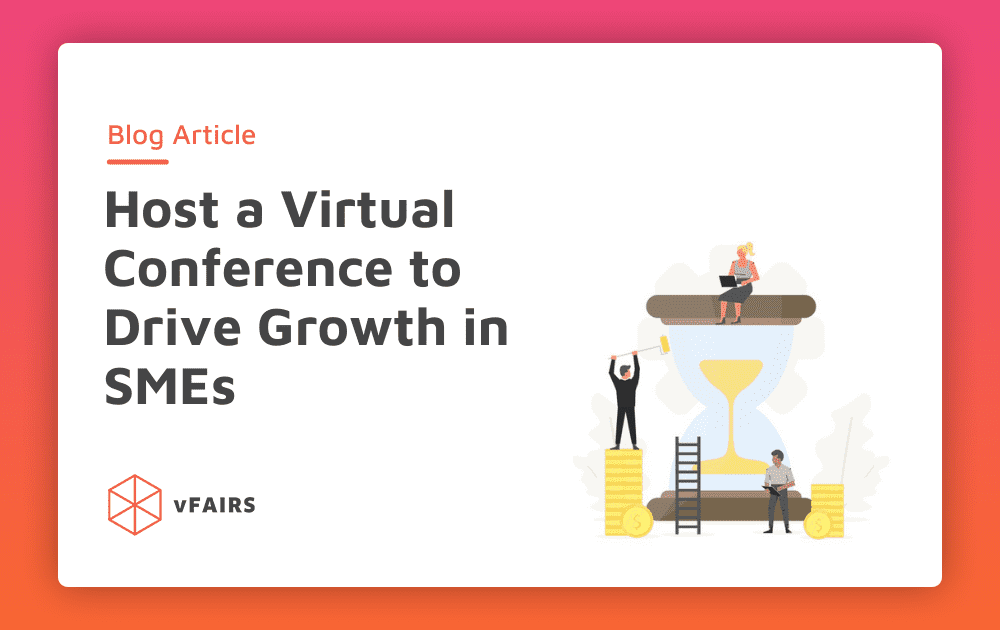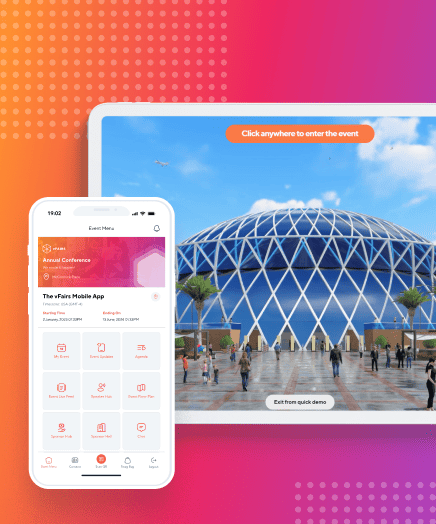Small and Medium Enterprises (SMEs), hindered by various constraints want to host a virtual conference. Here is a message for them: it is NOT impossible and EXTREMELY easy. Come along as we take you through the ins and outs of hosting a virtual conference for your SME.
Table of Contents
- What are Small and Medium Enterprises?
- What are Virtual Conferences?
- Reasons why SMEs should host a virtual conference
- Features of a virtual conference
- Plan a successful virtual conference for SMEs
- Content strategy to host a virtual conference for SMEs
- Tips to host a virtual conference for SMEs
- Final Verdict: Pros and Cons of Virtual Conferences
1. What are Small and Medium Enterprises?
Small and Medium Enterprises (SMEs) play a major role in economies, especially in developing countries. They contribute to job creation and global economic development. They are estimated to represent about 50% of employment worldwide. In emerging markets, 7 out of 10 jobs are generated by SMEs.
As the world begins to recover from COVID-19, and economies begin to heal from the economic upheaval that resulted from the world coming to a screeching halt, we see how important SMEs really are. SMEs are not only employers but also customers to larger companies across the supply chain. Their survival and ability to restart operations quickly will be a bellwether for the economy. They have the potential to be an economic and employment engine after the crisis. Hence, their importance is evident in post-COVID economic recovery.
After this major health crisis which affected every aspect of human life, SMEs offer a glimmer of hope as they promise to bring much-needed social stability, innovation and dynamism to the markets where they operate.
The potential they offer means SMEs must be protected and supported at all costs. Additionally, with SMEs spearheading economic development, there is a focus on digital tools and platforms to encourage the growth of SMEs in the coming years. COVID-19 already meant businesses, work and meetings have moved online. One such platform, that of virtual events, can fuel growth in SMEs. Let’s explore how hosting virtual conferences can be beneficial for SMEs and consequently for the economies in which they operate.
2. What are Virtual Conferences?
A virtual conference is an interactive event that takes place online bringing together a large group of people who share common niche interests or expertise – to network, learn, and plan.
Virtual Conferences, like physical conferences, consist of keynote sessions, breakout sessions, and much more, with the purpose to interact and engage with audiences online.
3. Reasons Why SMEs Should Host A Virtual Conference
Small and Medium Enterprises (SMEs) are central to the growth and development of economies. They come up with groundbreaking solutions to ever-evolving problems, create employment opportunities, bring revenue, and have the potential to grow into large organizations. SMEs are often looking for ways to expand their business and reach new customers and territories. Virtual conferences can enable them in achieving these objectives efficiently and cost-effectively.
For an SME, value for money is extremely important, hence, organizing an event that can boost the return on investment while providing a good branding opportunity is preferred. Organizing a physical conference is time-consuming, costly, and troublesome. From deciding on a venue to handling logistical issues, these conferences can be a hassle for the organizers. Unanticipated scenarios like the pandemic of COVID-19 can further make them an inconvenient choice for organizing events.
A virtual summit happens online and has numerous benefits for SMEs. Without further ado, let’s dig into them and see how they can help Small and Medium Enterprises in achieving their goals.
Boost Reach Of The Event
A physical conference has several limitations including the cap on attendees. Depending on the capacity of the venue, only a limited number of people get to be a part of the event. Additionally, not everyone can travel to the event location, especially the people who are living in another state or country but are the right audience for the event.
An online summit overcomes these barriers and allows attendees residing in any part of the world to be a part of the event. Compared to a physical event, an online conference can entertain several times more attendees. A virtual conference ensures inclusivity and is a great opportunity for people with special needs to be a part of the event from the comfort of their homes. SMEs would appreciate the increased attendance, as this would directly contribute to increased awareness and exposure.
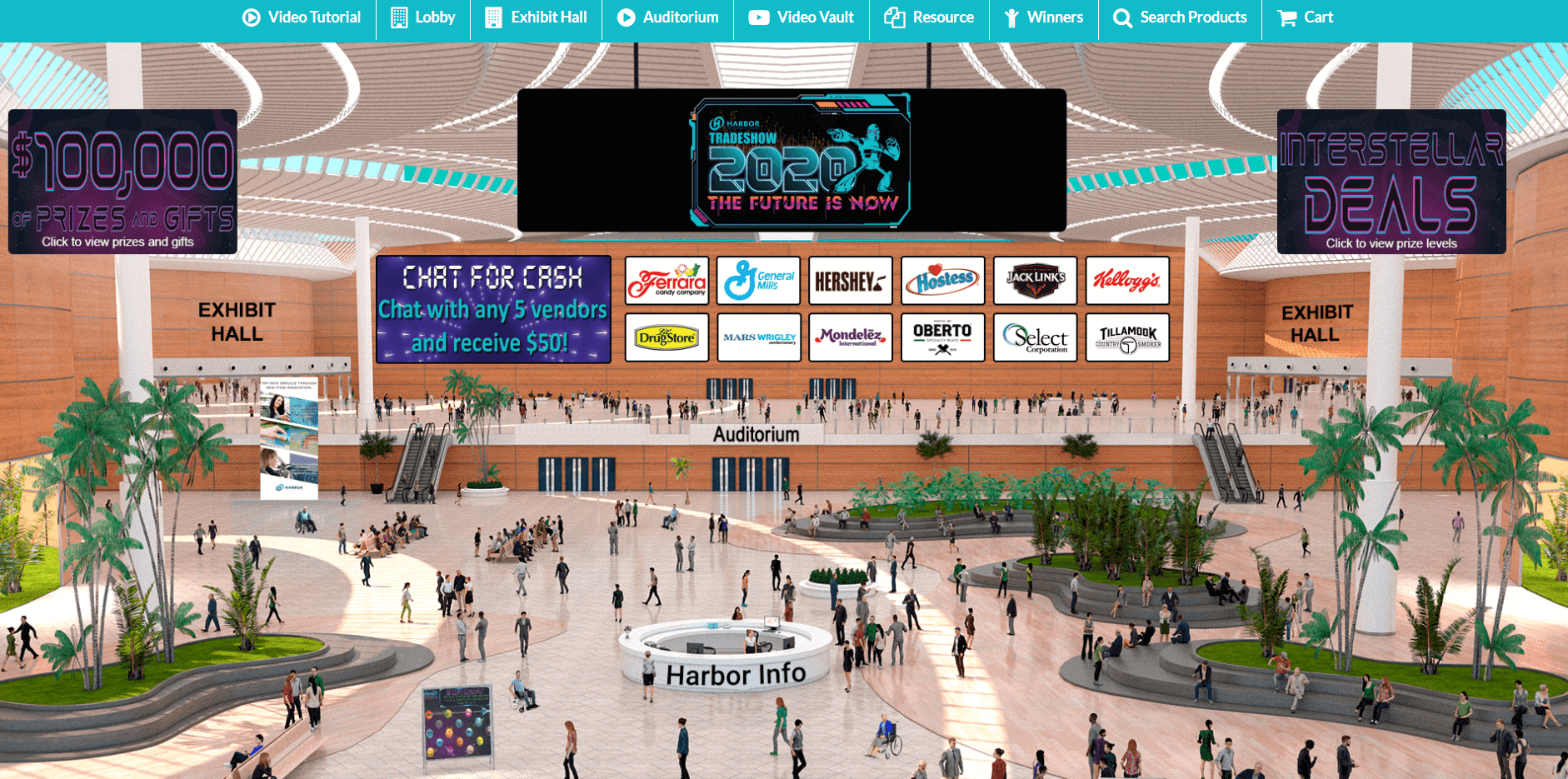
A virtual conference can be accessed from any device, on any browser, and from any part of the world. In short, everyone is welcome to join an online conference. Hosting a virtual event of this nature lets you address a wider audience
Eliminate The Hassle Of Logistical Arrangements
It is no secret that physical events come with tons of logistical issues. Even a day before the event, the organizers often find themselves tangled in logistical troubles that take their attention away from the event itself.
A virtual conference frees the organizers of these issues. In fact, conference organizers get to sit back and relax while the hosting platform manages everything on their behalf. Since no traveling is involved, organizers don’t have to worry about arranging transportation and accommodation for the attendees. Furthermore, they don’t have to think about booking food providers, setting up the venue, or last-minute cancellations from vendors. Event organizers simply have to share their requirements with the hosting platform that does everything for them and takes the burden off the shoulders of the organizers.
With limited revenue and income streams plus limited number of employees, SMEs can do without the hassle of organizing a physical event. A virtual conference offers the perfect solution instead.
Reduce The Cost Of The Event
Host:
Organizing a conference, or any event for that matter is usually one of the most nerve-wracking activities. Booking a venue, allocating on-hand staff, arranging food and beverages, and ensuring accurate security measures can exhaust huge amounts of money and even more energy. A virtual conference rids the host of all the stated hassle by providing them with a cost-effective online alternative, with 24/7 customer support to boot.
Keynote Speaker:
At a virtual conference, you may be able to attract high-demand speakers who typically have limited time for in-person conferences but are happy to jump on a video call to talk about industry trends. Not only is this a more schedule-friendly approach but also costs you nothing in terms of travel and accommodation expenses.
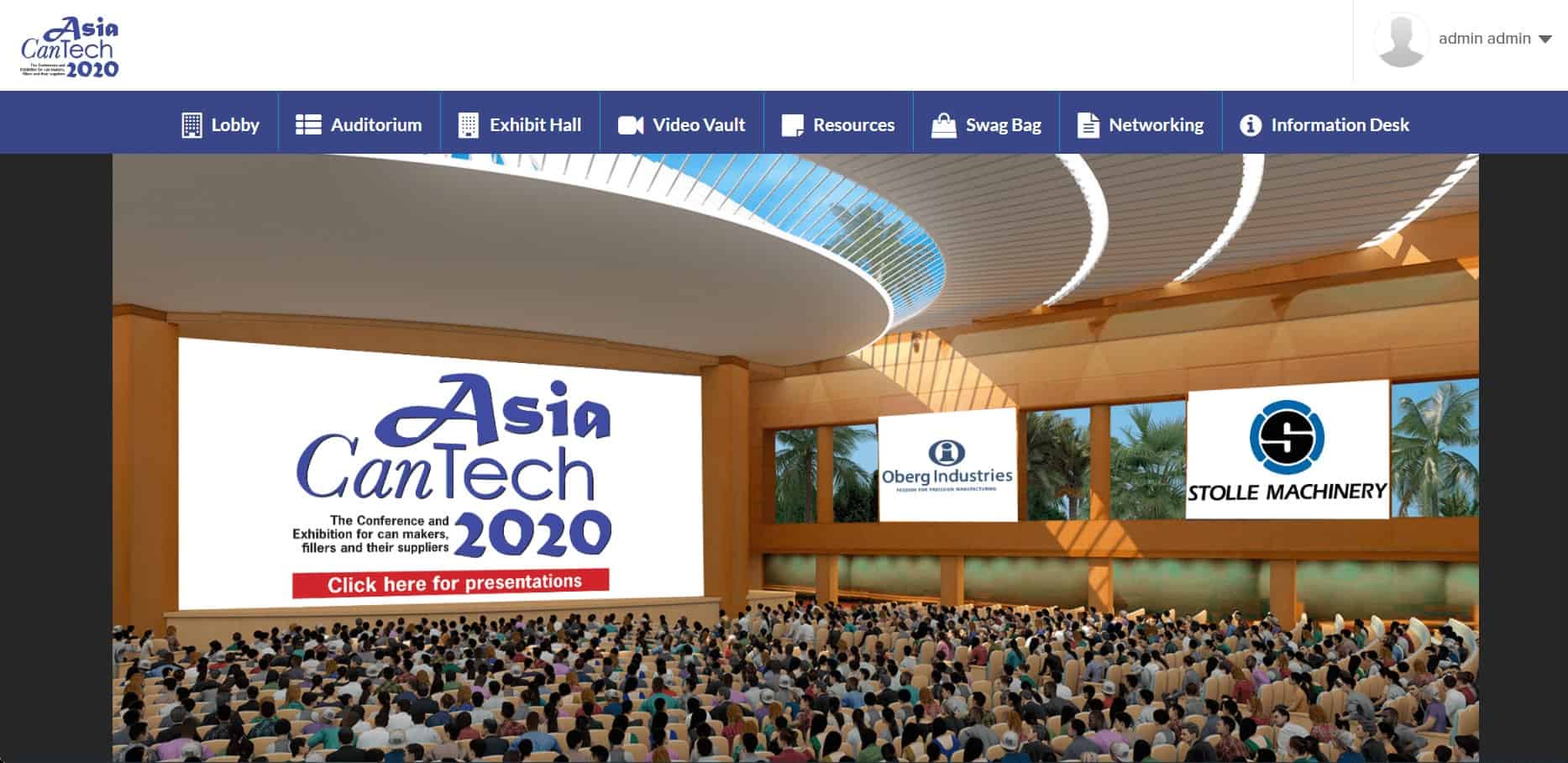
Attendees:
As stated previously, attendees can access a virtual conference from the comfort of their homes. Since they’re usually provided with the agenda prior to the event, visitors have the flexibility of planning their day around relevant sessions.
Why would an SME prefer to spend extra money organizing a physical conference when they could easily save up and deliver an experience just as meaningful virtually?
Connect With The Audience
In a physical conference, it is difficult for the booth representatives to connect with all the attendees. The attendees also find it hard to make their way through the crowd and reach a representative to get a query resolved. This negatively impacts the experience of the attendees and causes frustration.
An online conference addresses this problem and enables businesses to build lasting relationships with the attendees. Based on the hosting platform, a virtual conference usually provides audio, video, and text chat features. The chat can be a one-on-one session between an attendee and a representative of the organizing company or a group chat in which all the attendees can engage in a conversation with the company representative. This not only helps in addressing the concerns of the attendees but also provides a great experience that fosters the relationship between the two parties.
Insights and Reports
Analyzing the results of a physical conference becomes difficult given that there isn’t much data about the activities of the attendees inside the venue. It is hard to know what worked and what needs to be changed in a physical event. Host a virtual conference, on the other hand, and get your hands on reliable data that helps businesses make informed decisions in the future. SMEs can use the following data to understand their audience’s behavior:
- The number of attendees
- Booth traffic
- Webinar attendance
- Engagement metrics
- The demographics of the attendees
- Most popular times of the event
- Engagement and attendance during the speaker sessions
And much more!
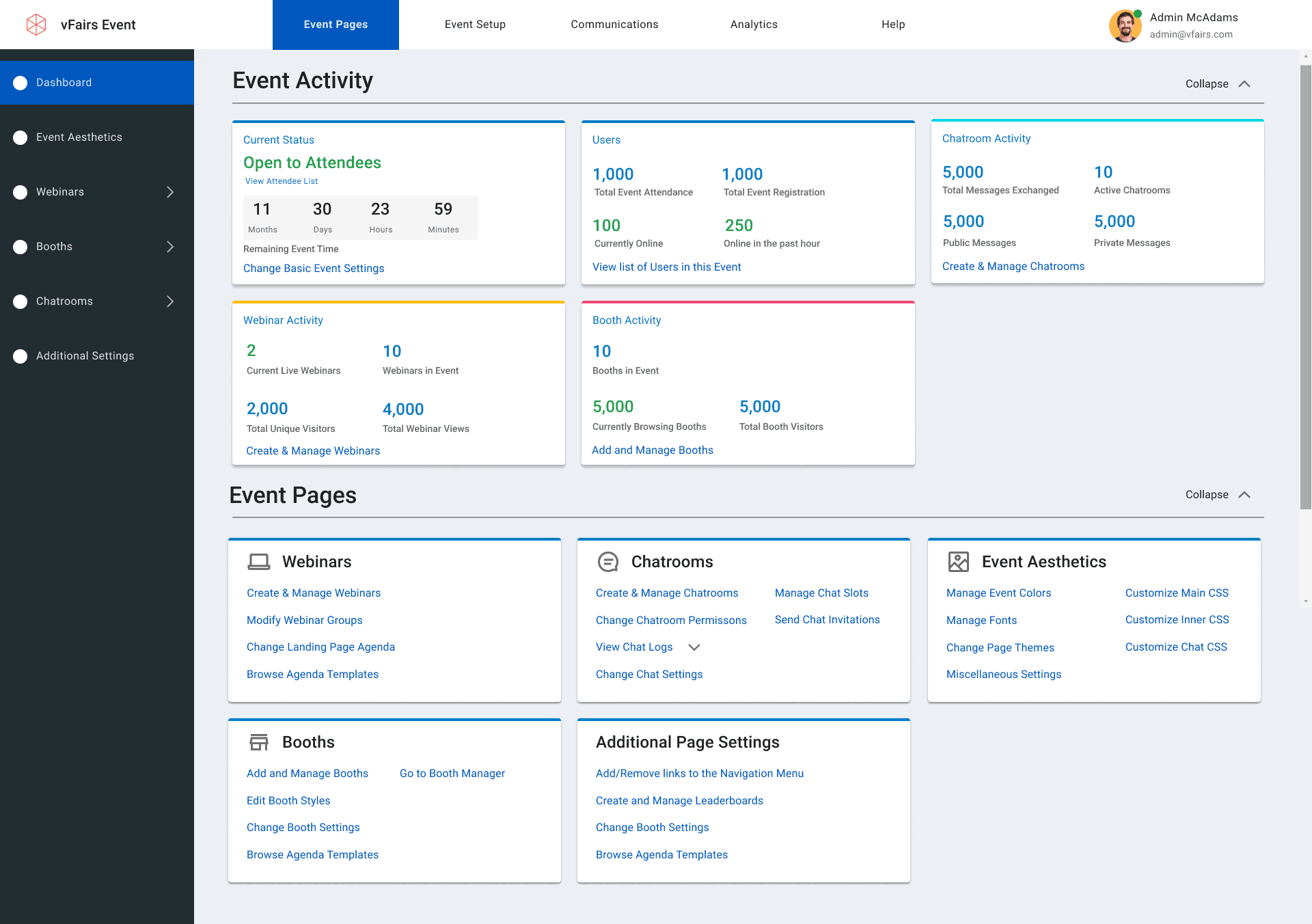
With the help of this data, it becomes easier to calculate the return on investment (ROI), understand the needs of the target audience, and figure out ways in which the event strategy can be improved.
A virtual summit is valuable not only for the organizers but for the attendees as well. It is free of geographical limitations, thus enabling people to join the event from anywhere with the help of an internet-connected device. A virtual conference is scalable with enhanced reach which ensures inclusivity and diversity. For SMEs, virtual conferences are a great opportunity to build brand awareness, reach out to potential customers across the globe, and organize a groundbreaking event without breaking the bank.
Evergreen Content
Taking your conference online means your content, such as recordings from the conference and other resources such as videos and documents, is entirely under your ownership and can be used as collateral for months and years to come.
Quick Feedback And Lead Generation
Live webinars at virtual conferences, just like seminars at physical events, are typically followed by interactive Q&A sessions, where organizers invite suggestions and insights from the audience.
Due to the scalable nature of these events, this is a more accurate way to understand your audience’s profiles, their concerns, and allows companies to incorporate that feedback into improving their processes.
Furthermore, registrants that sign up from across the globe can be added to the company’s CRM, mailing lists and other software platforms for lead generation in the future. This creates a level of convenience for SMEs otherwise unimaginable.
Environmentally-friendly Option
Since SMEs are drivers of economic growth, they also shoulder the responsibility of adopting environmentally-friendly policies. It is imperative that companies come up with solutions that do not damage the ecosystem. When you host a virtual conference you eliminate the use of brochures or any supplementary material that causes paper waste and instead make this information available in the form of online resources. Other aspects, such as the removal of travel, can further reduce the carbon footprint associated with your event, giving you another reason for taking your conference online.
Interested in hosting a virtual conference?
4. Features Of A Virtual Conference
Whether you are setting up a live online course or planning projects with your team of collaborators, you need to know the features to keep an eye out for in a virtual conference.
Personalized Tools
A crucial feature of virtual meetings is personalization. An SME may want to use a platform that suits their needs and offers complete control over customization. For example, if you’re presenting information and want inputs on it, include interactive feedback tools in your webinars. If you are trying to maximize exposure for your sponsors, you might want to offer panel spots in your sponsorship packages.
If you’re part of a business that interacts with clients through video, look for the conference sites that offer audio/video chats and webinars.
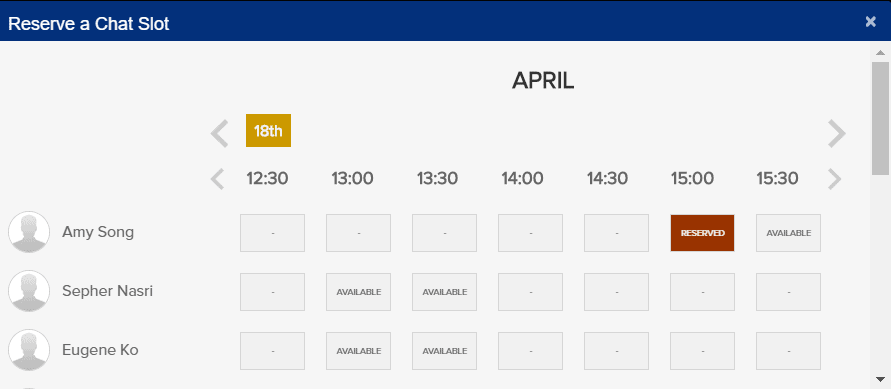
You can add a lobby, exhibit halls, auditoriums, and theaters to provide a unique experience to attendees. A networking lounge, a keynote session, or a sponsored meeting can also provide an opportunity for the attendees to involve in a much more intense dialogue.
Automation
SMEs need efficient platforms that are easy to set up and manage. If you want to save time, make sure the site you’re using offers automation. This comes in handy when you want to organize virtual events in a short span of time. Ask virtual event platform providers the following questions to inquire about automation.
- Can I get a tour of your backend?
- How long does it take for your platform to reflect the changes on the front end?
- Can the exhibitors/organizers make changes on the backend or do they have to involve your team for everything?
Live Broadcasting And Recording
It can’t be a virtual conference if it doesn’t let the organizers and participants interact live. Polls, Q&As, live chats, and tradeshows are options your digital platform should provide along with surveys. You may also look for sites that support a multitude of slideshows and presentations from different speakers.
If you want to save time, pre-recorded content is a great option. Also, on specific webinars, recorded lectures are accessible at all times through registration. Unfortunately, not all platforms offer these alternatives.
Social Promotion
A crucial part of virtual conferences is social promotion. You may want your webinars or educational sessions to reach an increased number of audiences. Plan the meeting with the help of your team and use Search Engine Optimization (SEO) tools such as tags, titles, and keywords. You can use Facebook, Twitter, Instagram to promote your workshop or lecture. Attendees can share quotes, screenshots, or can even react to your online performance. For this purpose, try to find a platform that collaborates with social media outlets or supports the promotion of your event on social media.
Sponsorship
Sponsors can fund your digital gatherings, making them more credible. They can also promote your work, so you may want to treat them as collaborators. 58% of businesses had to switch to virtual conferences because of the pandemic. Sponsors have adapted to that, and they offer different deals and ideas.
For an SME, engaging audiences is essential, and sponsors can help you set up a giveaway or a virtual after party. For example, they may include a spokesperson or even a celebrity that can add value to your virtual meeting. Lastly, remember to choose an interactive platform that allows sponsorships and brand deals.
Troubleshoot And Customer Support
When we talk about virtual meetings, we also talk about internet connection problems, sign-in difficulties, and other issues that may disrupt the conference. Hence, troubleshooting should be a priority if you’re organizing a virtual event.
The first step is to get acquainted with digital matters. If you are planning on hosting long-term, educate yourself through tutorials that can help you navigate and use all the tools you have on the platform. Secondly, try different sites that offer video conference services and pick the one with adequate 24/7 customer support. Thirdly, give your audience useful information such as emails or phone numbers of customer services.
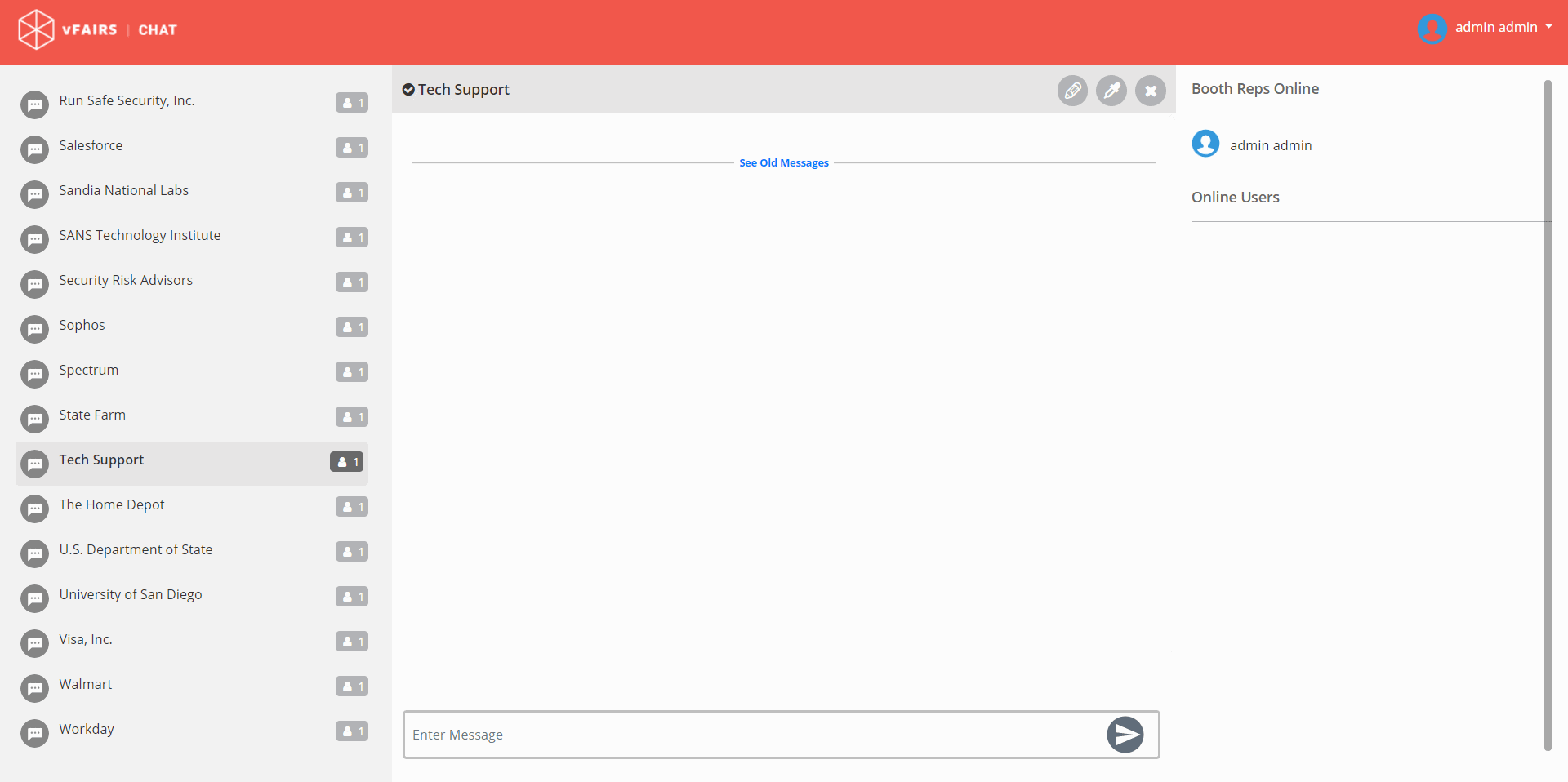
Audience Insights
One of the features that set a virtual conference apart from a physical conference is reporting. Since everything happens online, a virtual conference allows the organizers to gain valuable information about the attendees and how they interacted with the different features offered in the online conference.
Before selecting a platform for a virtual conference, do not forget to inquire about the availability of event reporting features. Not every platform shares data, which means you have to talk about it before signing a deal. With the help of event insights, you can focus on useful features and eliminate less engaging content from your future conferences. Hence, talk about event reports beforehand and go for the platform that offers insights.
Feedback And Growth
The last two features are feedback and growth. As an SME looks into organizing more and more virtual conferences, they will get familiar with the environment. In the meantime, they can send useful input to the platform regarding some less functional options. Reporting any issues will only make it easier for you to navigate the site.
Moreover, you can set up surveys for your very own audience, as well. That way, you can understand what your viewers want to see more or what options they don’t like. For example, you can schedule your meeting based on a poll regarding the date or specific topic. You can survey your sponsors too.
5. Plan A Successful Virtual Conference for SMEs
According to MarTech, by 2021, video content will account for 80% of global online traffic. In addition to this, virtual conferences can help businesses save up to 75% of annual costs. On top of that, they are environment-friendly and hassle-free to organize. SMEs need to make the move and benefit from this growing platform, right now! Planning a virtual conference is easy. Here is how you can organize a successful online conference.
Define Target Audience
The first item in planning your conference is choosing the target audience. If you understand who will listen to you, you can work out the structure of the conference. You need to determine what your audience is most interested in and what solution they want to find through your virtual conference.
Choosing The Right Platform
After finalizing your speakers, jot down the ideas and start formulating them into action because that is when you start your search for a service provider. There are a number of platforms offering a platform for online events, with varying degrees of features.
It is important to do your homework before deciding between your potential service providers. Some of the standards questions that can be asked for comparison:
- The engagement features it offers
- Scale of design and configurations it allows
- Extent of different languages it supports
- Compatibility with CRM tools
- Which accessibility features are available
- Scope of customer support as per your time zone
With vFairs, you don’t have to worry about the plugins or any additional extensions. It is also compatible with CRM platforms that will make your virtual conference experience a breeze. Click here to see a list of questions that might come handy for your event.
Choosing the right platform with CRM integration allows you to:
- Share content using dynamic layouts and customized designs
- Enhance your mailing list for future marketing campaigns
- Update attendees on a newly launched product or service relevant to the theme
- Engage and remind your attendees prior to an event
- Build long term relationships with your prospects
Find Speakers
If you do not plan to be a speaker and want to attract third-party experts, then you need to start the search immediately after the target audience has been determined. The speaker should focus on finding a solution to the problem of the audience. Find speakers who closely match the needs of your target audience. Get them on board by highlighting the benefits of a virtual conference. Explain how many participants are expected and how this can positively affect the speaker’s success. If the conference format allows, you can permit speakers to sell or advertise their products as well through the conference platform.
Create The Structure
Just like a physical conference, a virtual conference requires a clearly defined structure. A conference needs to have an agenda that not only defines the structure but also helps in attracting more attendees. A basic structure includes an opening speech, presentations, keynote speeches, webinars, and time duration of all the activities.
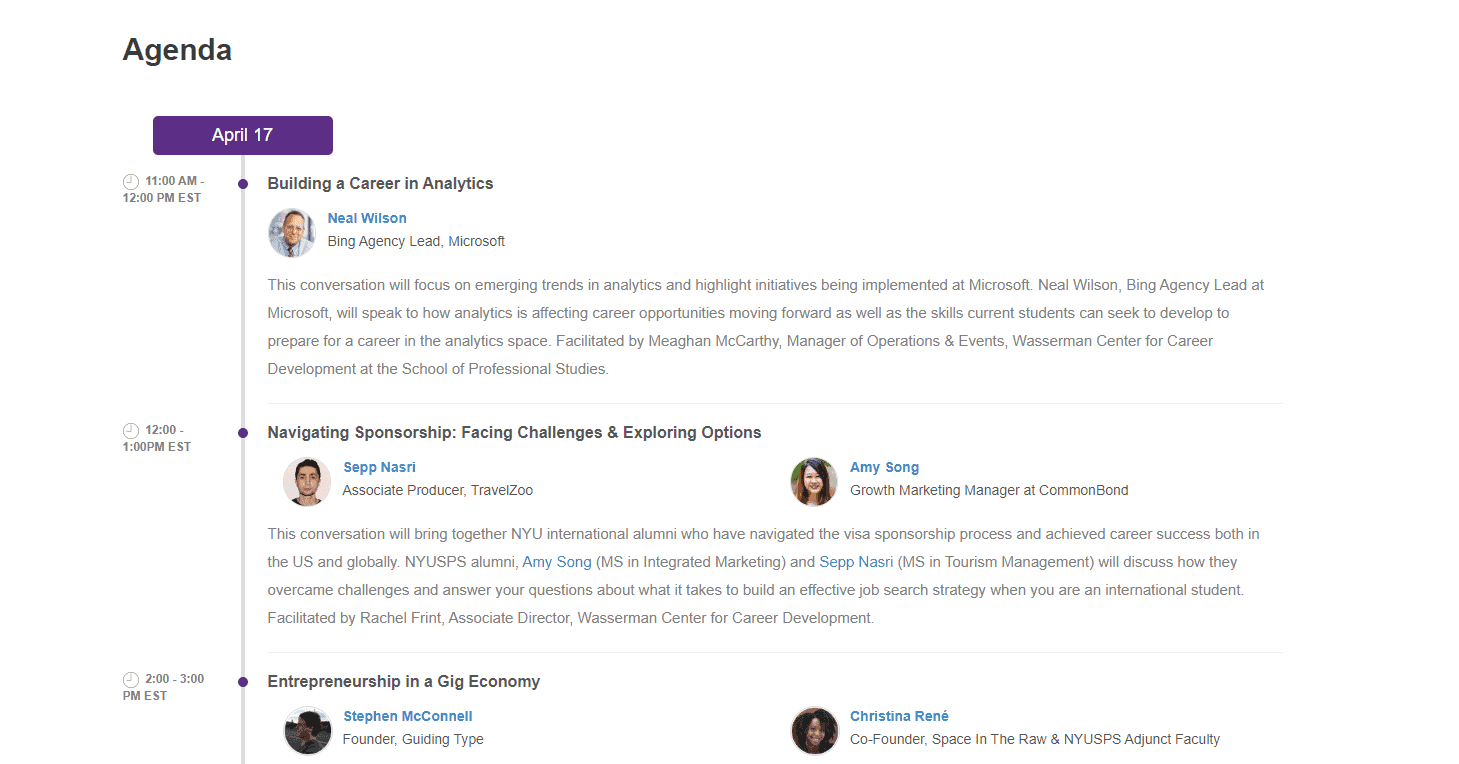
Set Up A Landing Page
A landing page for the event will come in handy for getting more attendees by providing them the agenda and information about the speakers. This can help in getting more people to sign up for the event. The landing page can also provide information about the event sponsors. Creating a signup page for the event on the website can confuse the attendees and divert their attention to other sections of the website, resulting in a lower signup rate for the event. Thus, a stand-alone landing page for the event must be set up.
Promote Your Event
After setting up a landing page, it’s time to start promoting the event. Some ways to effectively advertise your event include the following.
- Leverage social media platforms like Facebook, LinkedIn, Instagram, and Twitter
- Send mass emails using your mailing list
- Work on a press release to reach the masses
- Add a banner, pop-up, or a snack bar to your website that talks about the event
- Ask the speakers and partners of the event to spread the word in their network
Prepare Your Employees
Not everyone can navigate through a virtual event without assistance or attend an event without having a question about it. To help make the event a hassle-free and informative affair for the attendees, you need to prepare your staff for answering queries during the event. Virtual events come with a chat option (audio/video/text) that allows the attendees to interact with the event organizers however they like and resolve their concerns. Choosing people from your team and training them to effectively use the online platform to answer queries will help in enhancing the experience of people and enable you to conduct a successful virtual conference.
Analyze The Conference
As mentioned earlier, most likely you will want to use this method again. But for this, you need to analyze how your conference went to improve the upcoming one. Save your stream and watch it several times. Determine what needs to be fixed, and how you can attract even more participants.
Manage Expectations
You need to understand the time frame involved in building a virtual conference. It takes very meticulous effort to bring you the virtual experience needed to make a difference. On average, it takes around 3 months to set up an online event. Most of the time is spent on content, design, configurations and preparing webinars. Most importantly, it takes time to promote the event through various marketing channels to reach your audience.
Protips
- Test all of your equipment and tools prior to the start of your virtual conference
- Begin with an ice-breaking session to make everyone feel comfortable
- Stimulate an interactive environment by using polls and Q&As
- Ask closed-ended questions instead of open-ended as it may result in “dead air”
- Be courteous towards everyone
Ready to host your virtual conference?
6. Content Strategy To Host A Virtual Conference for SMEs
To set up a successful event, whether virtual or in-person, you need to put a solid content strategy in place. This includes the design, creation, and management of engaging content – across websites, social media platforms, newsletters, and everywhere else your target audience resides.
A strong content strategy is vital to inspiring, informing, and raising awareness about your SMEs brand and its reputation as a thought leader in the industry. This article will guide you in constructing a fool-proof content strategy for your next Online Conference.
Step 1: Determine Your Event Type And Client Profile
Who is your target audience? What are they looking for? What are your company objectives, and do you require a meeting, conference, or summit to fulfill them?
Streamline your goals and the user needs to bring them in line with your content efforts. Simply put – everything you do related to the content should resonate with those predetermined conditions.
Step 2: Plan The Visual Experience
(i) Landing page: to set up a compelling homepage, get creative and look for design inspiration. Your vendor should be able to share ideas and templates in order to help you brainstorm content for the following:
- Title of the event: Remember to keep it short and sweet (and in-sync with your event domain address)
- Event date and timings (along with your time zone, as virtual events welcome an audience from across the world)
- Content for homepage such as agenda, logos, FAQs, introductory videos: The landing page will be a summary of who is participating, what to expect, why visitors should participate, and quick overviews of all things important for the audience to know. Ensure a power-packed introduction that will motivate your audience to register without any delays
- Cover image and high-resolution logo for the event: Put a loud and clear mark on your audience by using essential branding options for your homepage
- Attendee Registration: Determine the information you would like to collect from your audience and add necessary fields on your registration form
- Registration Communication: Prepare drafts for attendee correspondence (once an individual registers for your event, they will receive an automatic registration confirmation email and show a thank you note)
(ii) Lobby Design: The hub of all event navigation, the “Lobby”, is the area your visitors will be routed to the second they register and log in.
- Select display: Choose if you’d prefer an animated or static lobby and review available designs/samples from past events (our recommendation: An animated lobby delivers a stronger “wow” factor to greet guests)
- Decide lobby banners and logos corresponding to exhibitors and event sponsors, just as in a physical conference
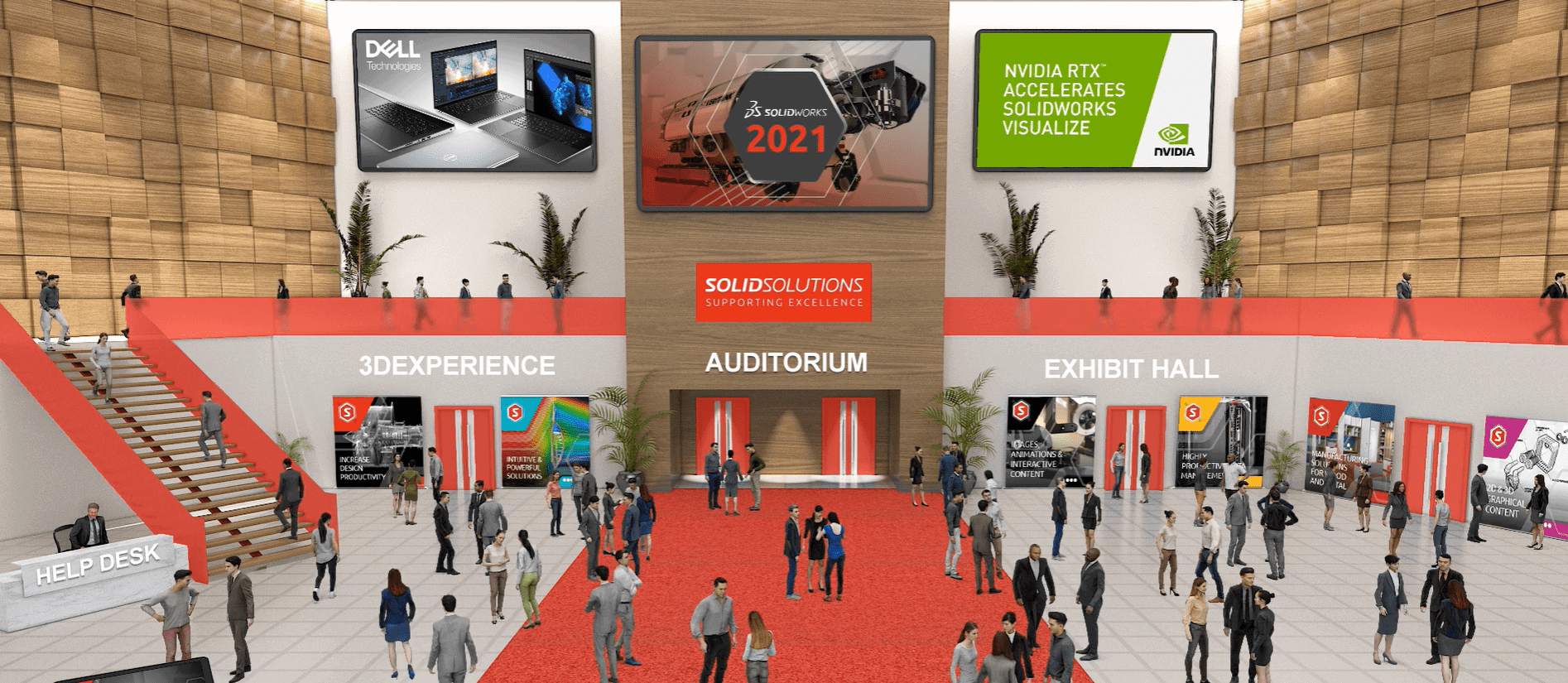
(iii) Exhibitor Hall: Similar to the lobby, the “Exhibitor Hall” in a Virtual Conference is totally configurable to cater to your content preferences including a) Hall background image b) Booths layout c) Static staff avatars
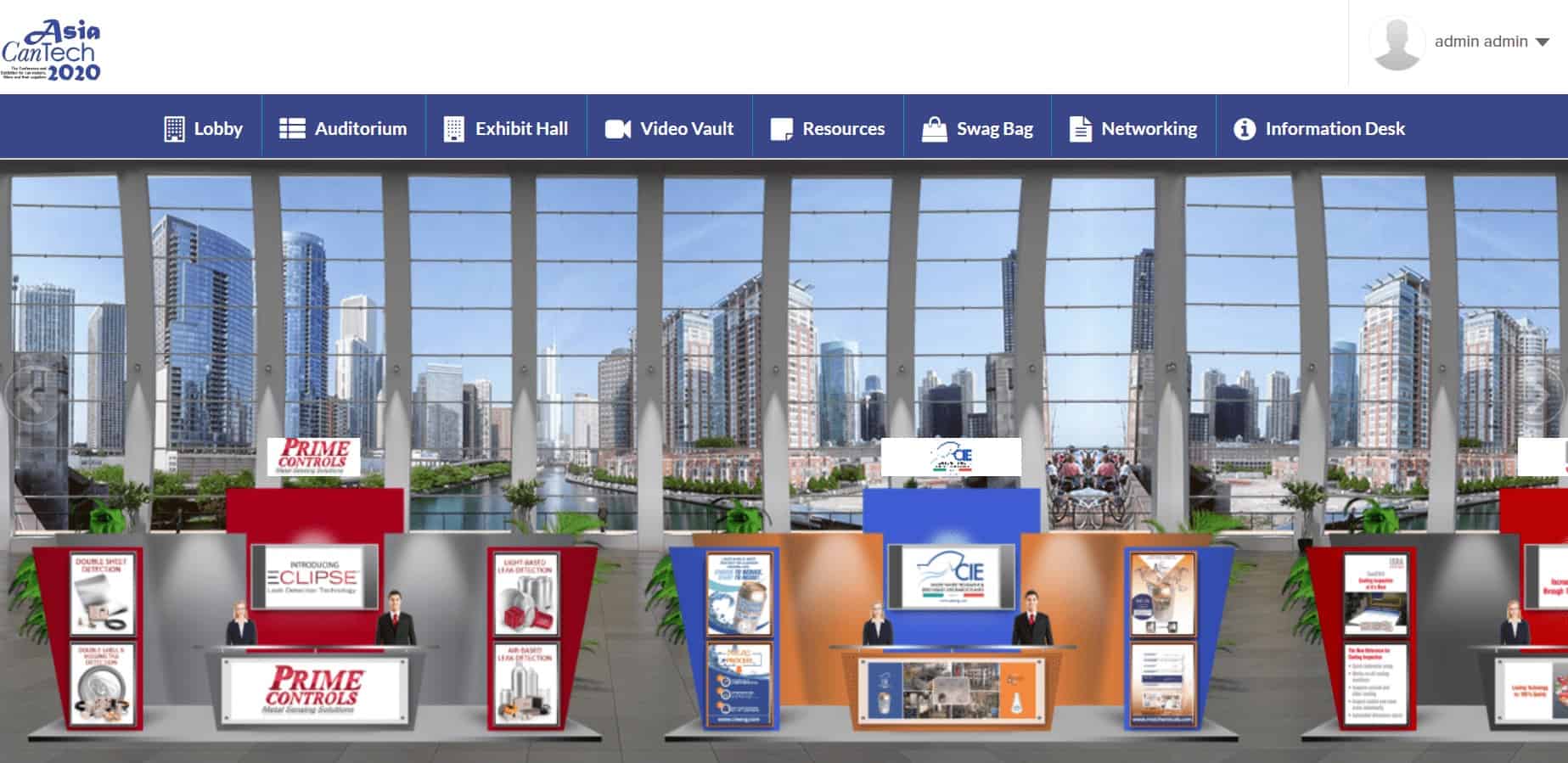
(iv) Auditorium Design: This is the hub of all your tremendous webinars. Gear up to explore auditorium design options with your event provider and make an impact with your audience with posters and logos.
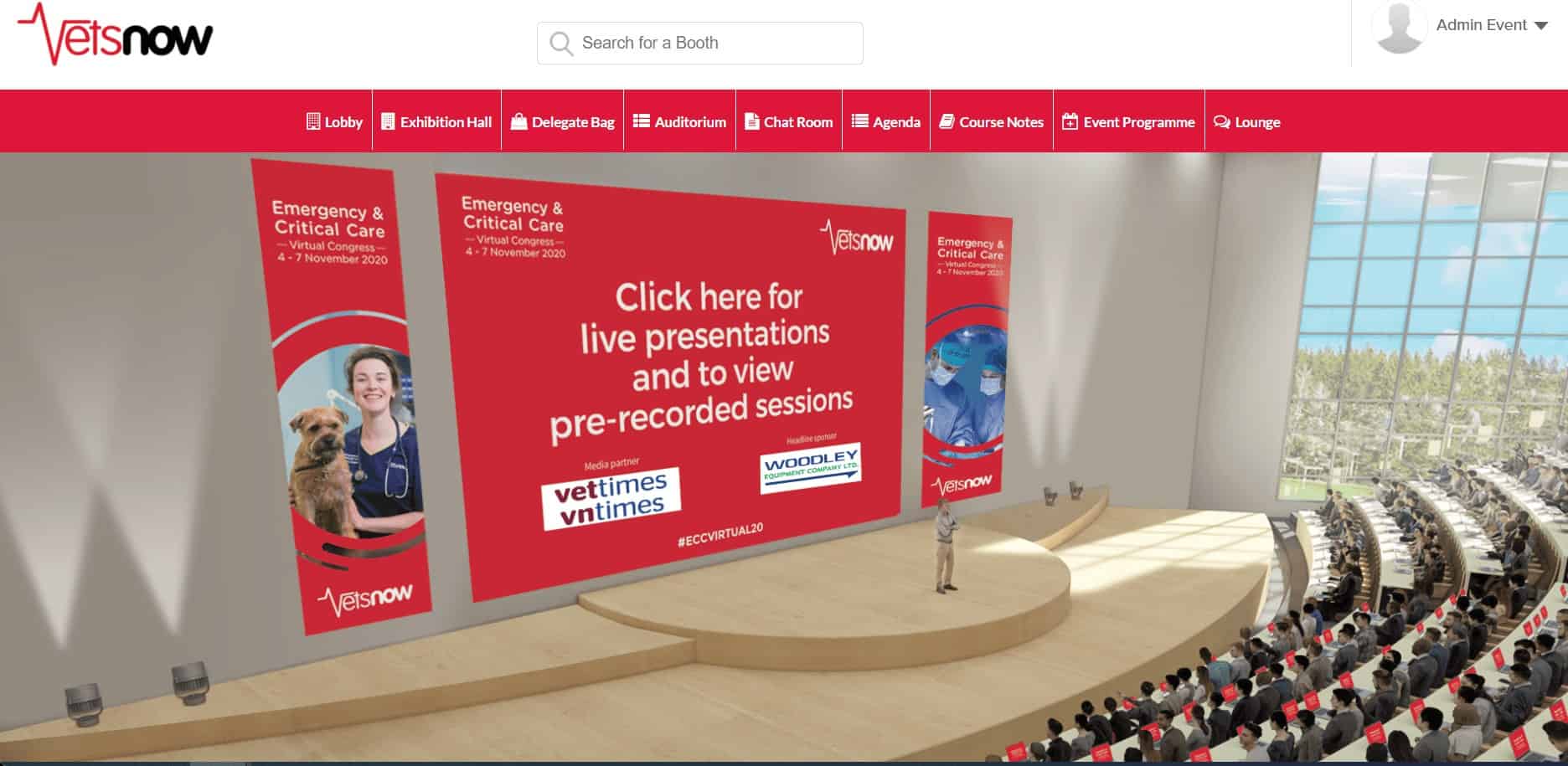
Step 3: Piece Together Content For Booths
Now that you’re done setting up a visually impressive, eye-opening, jaw-dropping experience for your attendees, it’s time to add some value for their consumption.
The virtual platform accommodates formats including documents, videos, presentations, picture galleries, live or pre-recorded webinars, and much more, to set up an engaging online conference. This gives exhibitors a large range of options to deliver and cater to their audiences.
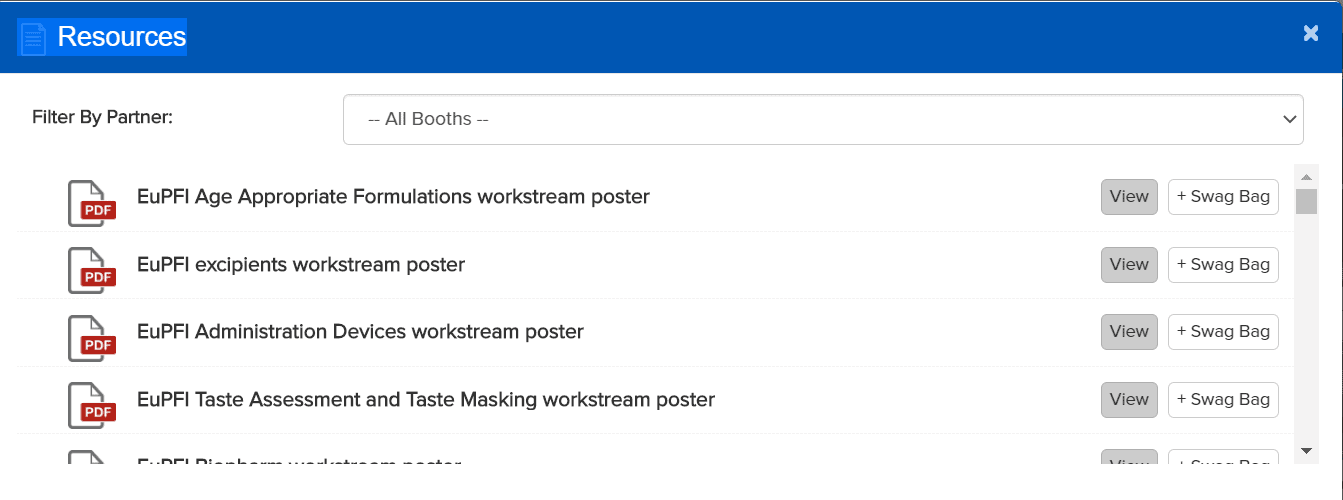
Step 4: Plan Out A Webinar Schedule
Webinars have proven to help marketers generate more qualified leads time and again and engage audiences. Especially as the world has recently switched to an entirely digital frontier, the demand, as well as the engagement at webinars has risen tremendously.
Creating a webinar schedule that accommodates the schedules of your audience as well as speakers is key to your online conference’s success. According to recent trends, people prefer to attend webinars on Tuesdays, Wednesdays, and Thursdays. Moreover, as a rule, 11 a.m. to 2 p.m. are the best times to host a webinar.
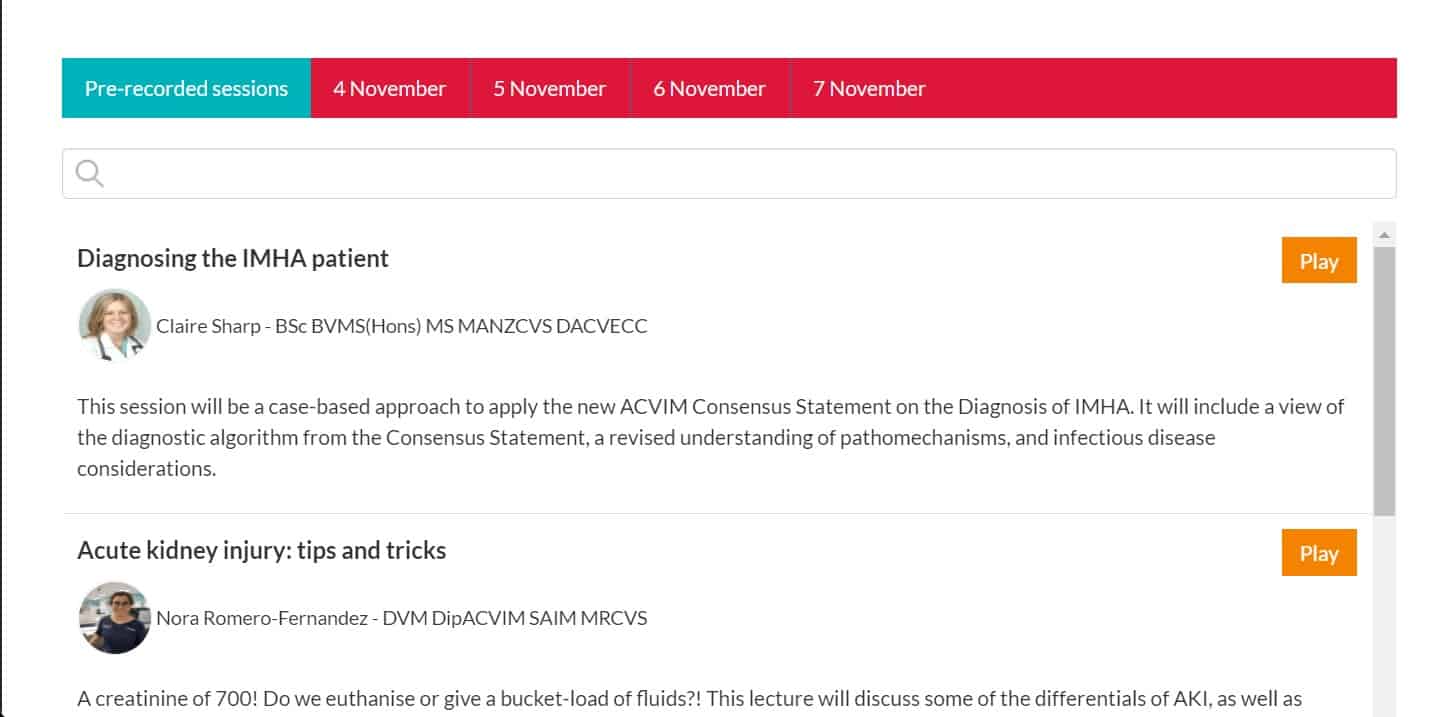
Your landing page should ideally consist of a clear schedule of your webinars, the topics of discussion, and the speakers appearing – for those who wish to hop in during the hours of their interest.
Step 5: Promote Your Event
Use social media platforms, your company website, independent landing pages (such as microsites), and all other mediums where your target audience is present. Grab their attention and provide them with relevant information that helps them understand what your event entails and eventually sign up for it. Do not forget to link this content with a simple and direct call to action.
Now is the time to build a killer content strategy to cut through increasing competition and make an impact in order to attract, engage, educate and convert global audiences effectively.
7. Tips To Host A Virtual Conference for SMEs
No matter the scale or the industry in which your business operates, networking and global brand positioning is always welcome. However, due to the logistical and technical obstacles in bringing B2C and B2B stakeholders into a single venue, virtual conferences have proven themselves to be excellent alternatives. This is why they are golden for SMEs.
According to Vimeo, 80% of all internet traffic will be composed of video content by 2021, with nearly 80% of marketers already recognizing video as an increasingly important medium. In terms of lead generation, video content on LinkedIn managed to earn 30% more engagement than its non-video counterparts. This indicates an organic shift toward virtualized content which you can take advantage of by introducing virtual conferences at the fraction of time and resources required to do so in comparison to traditional events. With that in mind, let’s dive into several practical tips for hosting a successful virtual conference for the benefit of both your speakers and attendees going forward.
- Choose a reliable platform
- Prepare for technical difficulties
- Set clear instructions and client support
- Provide collaboration opportunities between attendees
- Facilitate live social updates with walls.io
- Place sponsorship ads and promotional materials
- Gather post-event feedback
Now that we have successfully established all the reasons your SME needs to venture into the virtual landscape and host a virtual conference, let’s have a final look at the pros and cons of a virtual conference.
8. Final Verdict: Pros And Cons Of Virtual Conferences
At a time when the world has transitioned into a ‘digital everything’ kind of dynamics, it can be difficult to hop on the bandwagon without any prior knowledge of a certain shift. When you want to host a virtual conference it is quite natural to want to know what to expect from this experience.
The basic idea of a virtual event is the lack of physicality. Quite the obvious fact. However, there are significant ramifications you may not have considered. For instance, reports indicate a staggering $33,000 per year in savings for companies using video conferencing.
So, without further ado, let’s see what the pros and cons of a virtual conference are and why they have been trending in today’s world.
Pros
- Low cost of hosting an event virtually
- Saves time, energy and resources
- Virtual conference can be up and running in minutes
- Efficient and cost-effective marketing
- Virtual conferences are scalable, versatile and adjustable
- Increased potential outreach
- Effective networking; live chat tools
- Evergreen content available
- Accessible to disabled individuals
- Access to data and information in real-time
Cons
- Lacks human contact
- The home environment has distractions
- Limits participants who aren’t technologically savvy
However having said that, the pros outweigh the cons and we can see there are definite advantages to hosting a virtual conference.
Companies around the world realize the benefits of virtual conferences. Apart from saving time and money, virtual meetings are customizable, require fewer logistics, offer better marketing options, and enhance reporting. Classic assemblies have the unique advantage of allowing human contact and natural social interactions. Which, in turn, can prove indispensable in some cases of important business gatherings. Now that you are equipped with all the relevant knowledge for when you want to host a virtual conference, you can take your SME to new heights of success.

